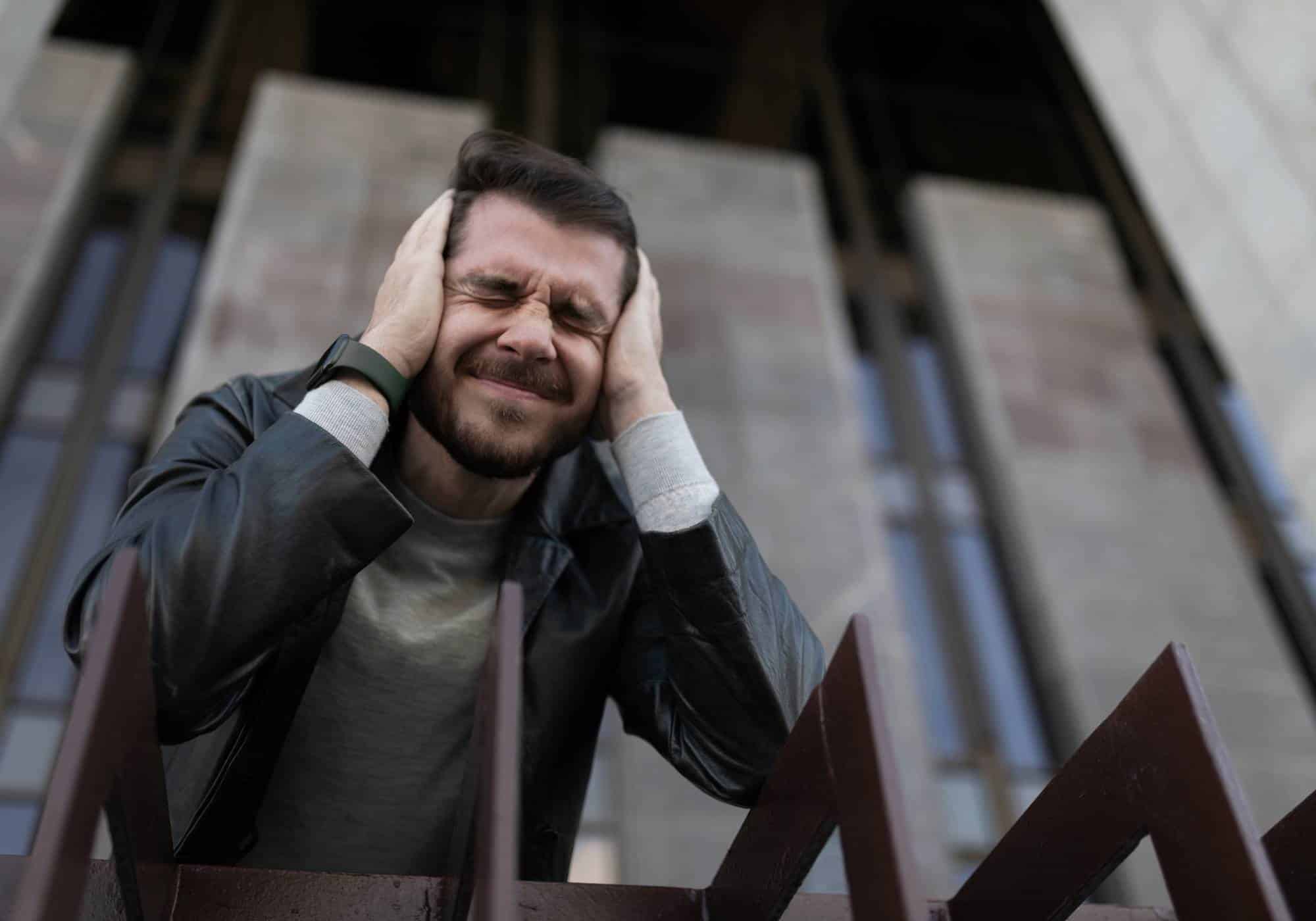Experiencing what’s commonly called an anxiety attack can be intensely unsettling, often leaving people feeling panicked and vulnerable. It’s important to understand the nature of these episodes and effective coping strategies.
Although not officially classified in medical terms, “anxiety attack” is widely used to describe severe instances of anxiety triggered by stress or perceived dangers. This term is often confused with “panic attack,” which refers to sudden, intense surges of fear that trigger extreme physical reactions. These episodes can be debilitating, making individuals feel as if they are losing control or facing imminent doom.
What many refer to as an anxiety attack might actually be a manifestation of an underlying anxiety disorder or a reaction to certain stressors or daunting scenarios that provoke anxiety. Recognizing and managing these intense anxiety symptoms is essential for treatment and relief.
What is an Anxiety Attack?
Although the term “anxiety attack” isn’t formally recognized in the “Diagnostic and Statistical Manual of Mental Disorders, 5th Edition” (DSM-5), anxiety features prominently across a spectrum of mental health disorders.
These disorders include:
- Generalized Anxiety Disorder
- Panic Disorder
- Separation Anxiety Disorder
- Agoraphobia (without a history of Panic Disorder)
- Post-Traumatic Stress Disorder
- Social Anxiety Disorder
- Obsessive-Compulsive Disorder
- Specific Phobias
Anxiety often arises from the anticipation of a potential stress-inducing event or situation and may build gradually.
Typical signs of anxiety include:
- Persistent worry or apprehension
- Feelings of distress
- Sensations of fear
Due to the absence of a standardized definition for “anxiety attacks” within clinical diagnostics, the manifestations of these episodes can significantly differ from person to person. Consequently, what one individual describes as an “anxiety attack” could present with symptoms that are distinct from another’s experience, despite both using the same term to describe their feelings.
Recognizing an Anxiety Attack
Identifying an anxiety attack can be tricky as the symptoms can be intense and debilitating, often beginning as a normal stress response before escalating into overwhelming anxiety or panic. It’s crucial to understand that the physical symptoms of an anxiety attack, such as chest pain and shortness of breath, can mimic those of other severe health conditions, like heart attacks. This similarity can understandably lead to confusion and heightened concern that the symptoms might signal a more serious health issue.
While certain symptoms might help differentiate between a heart attack and an anxiety attack, definitive identification of a heart attack requires medical evaluation. It is critical for anyone experiencing these symptoms, particularly those at risk of heart conditions, to seek immediate medical care.
Moreover, distinguishing between anxiety attacks and panic attacks can also be complex, as they share many symptoms. A key difference often lies in their onset; panic attacks typically begin abruptly and without an obvious trigger, which might suggest the episode is a panic attack. Frequent occurrences of such episodes could indicate panic disorder. Understanding these differences is essential for effective management and treatment.
Signs And Symptoms of an Anxiety Attack
Experiencing anxiety is a natural response to stress or danger, activated by our body’s instinctive fight-or-flight response. However, anxiety attacks go beyond typical nervousness, causing intense panic and a feeling of helplessness.
Anxiety attacks manifest differently from person to person, with a variety of physical and psychological symptoms. These symptoms often occur in response to perceived threats but can also appear suddenly without a clear trigger.
Individuals experiencing an anxiety attack might encounter a mix of the following symptoms:
Physical Symptoms:
- Rapid heartbeat or palpitations
- Chest pain or discomfort
- Shortness of breath or a suffocating feeling
- Trembling or shaking
- Dizziness or lightheadedness
- Flushing or chills
- Upset stomach or nausea
- Diarrhea
- General fatigue
- Restlessness
- Muscle tension
- Numbness or tingling in hands and feet
- Difficulty sleeping
Psychological Symptoms:
- Overwhelming fear or panic
- Feelings of losing control or dread
- Irritability
- Hypervigilance
- Difficulty concentrating or mental cloudiness
Recognizing these symptoms is critical for those experiencing or observing an anxiety attack, enabling them to seek necessary help and support.
Causes Of An Anxiety Attack
Anxiety attacks can be triggered by a variety of factors that differ significantly from person to person. Common sources of anxiety include:
- Stress related to work or professional responsibilities
- Travel or driving anxiety
- Social interactions or events
- Specific phobias such as agoraphobia (fear of open or crowded spaces), claustrophobia (fear of confined spaces), and acrophobia (fear of heights)
- Memories or flashbacks of traumatic events
- Chronic health conditions like heart disease, diabetes, irritable bowel syndrome, or asthma
- Ongoing pain
- Withdrawal from substances such as drugs or alcohol
- Excessive caffeine intake
- Certain medications or supplements
- Thyroid abnormalities
Understanding these triggers is essential for managing and mitigating anxiety effectively.
Handling an Anxiety Attack
When an anxiety attack strikes, several immediate tactics can be employed to lessen its severity:
- Recognize that you are experiencing an anxiety attack and reassure yourself that it will pass.
- Utilize deep breathing techniques to combat hyperventilation and slow down your heart rate.
- Try to relax your muscles to reduce physical tension, which can help restore your sense of control.
Severe anxiety attacks often bring an overwhelming sense of impending doom, leading many to seek emergency medical help. These episodes can result in hospital visits where individuals receive the care they need.
Anxiety attacks are typically triggered by specific stressors. Avoiding these triggers can reduce the frequency of attacks, but this isn’t always feasible, particularly if the triggers are part of everyday life. Consistent anxiety responses to certain situations may suggest an underlying anxiety disorder, which might require professional treatment through therapy or medication.
To avert future anxiety attacks, consider implementing these strategies:
- Communicate openly with friends or join a support group.
- Develop techniques for handling stress and ongoing concerns.
- Incorporate meditation or relaxation practices into your daily routine.
- Ensure adequate sleep.
- Keep up regular physical exercise.
- Reduce or eliminate the consumption of alcohol, caffeine, and tobacco, as these can intensify anxiety symptoms.
If anxiety or panic attacks frequently lead you to use substances as a coping mechanism, Iris Wellness Group can offer support. For advice on managing anxiety and substance dependency together, contact Iris Wellness Group at 423-401-9630 or fill out our online form for a consultation.
Anxiety Treatment Treatment in Chattanooga, TN at Iris Wellness Group
At Iris Wellness Group, we believe anxiety should not prevent you from living your best life. We are committed to helping individuals overcome their anxiety and achieve lasting well-being. Our team of professional and compassionate staff provides customized outpatient mental health treatments, utilizing evidence-based approaches across various therapeutic programs. We are ready to support you at every step of your recovery journey. Contact us at 423-401-9630 or fill out our online form today to start your journey towards effective anxiety treatment in Chattanooga, TN. Together, we can strive for a brighter and healthier future.












